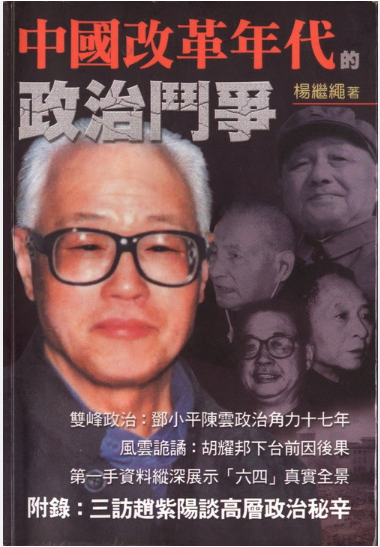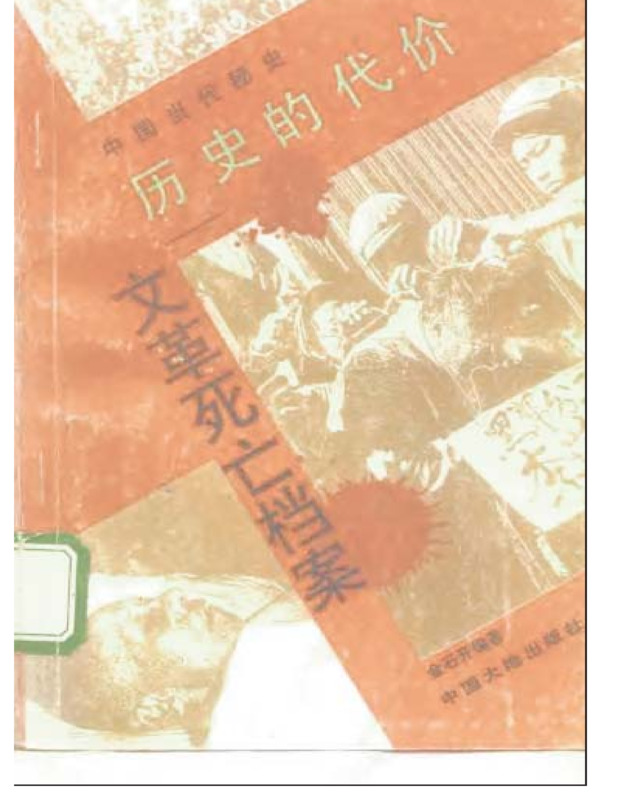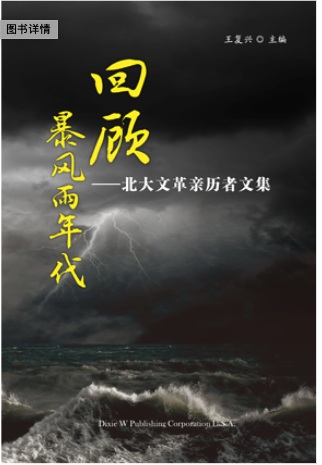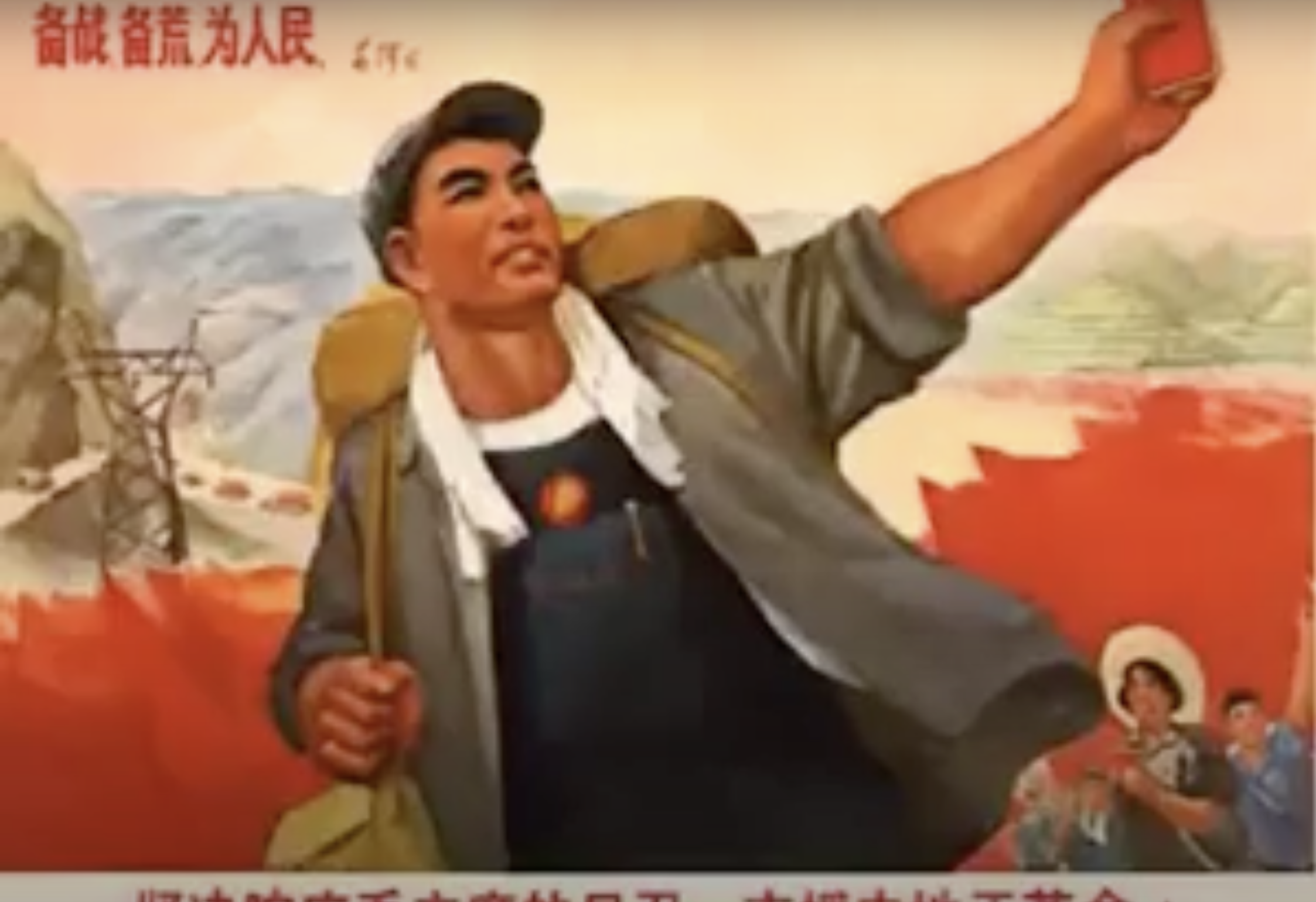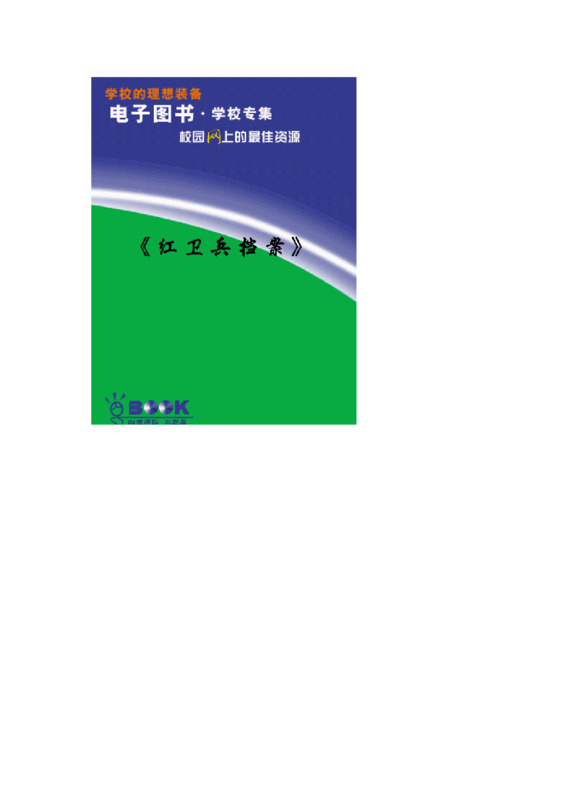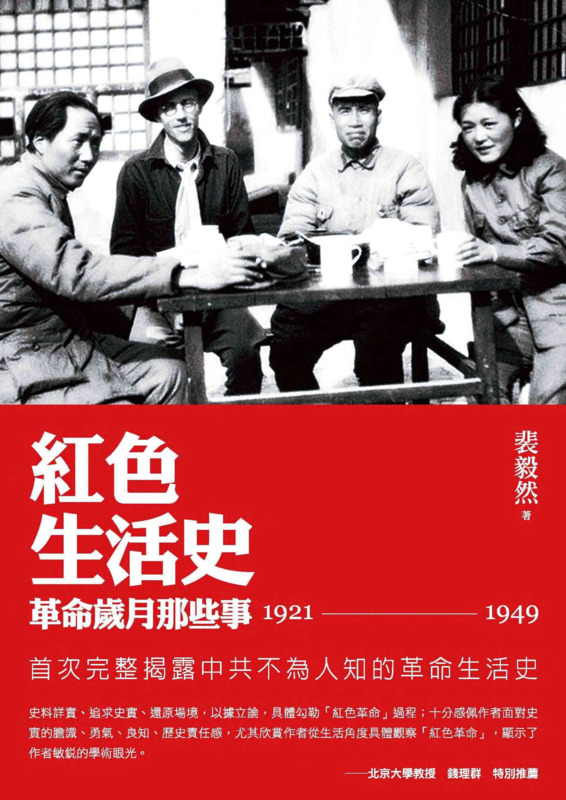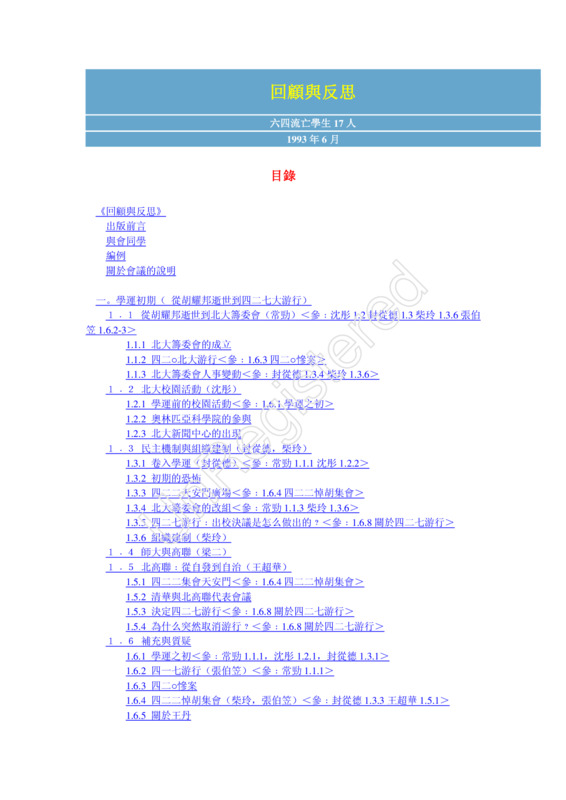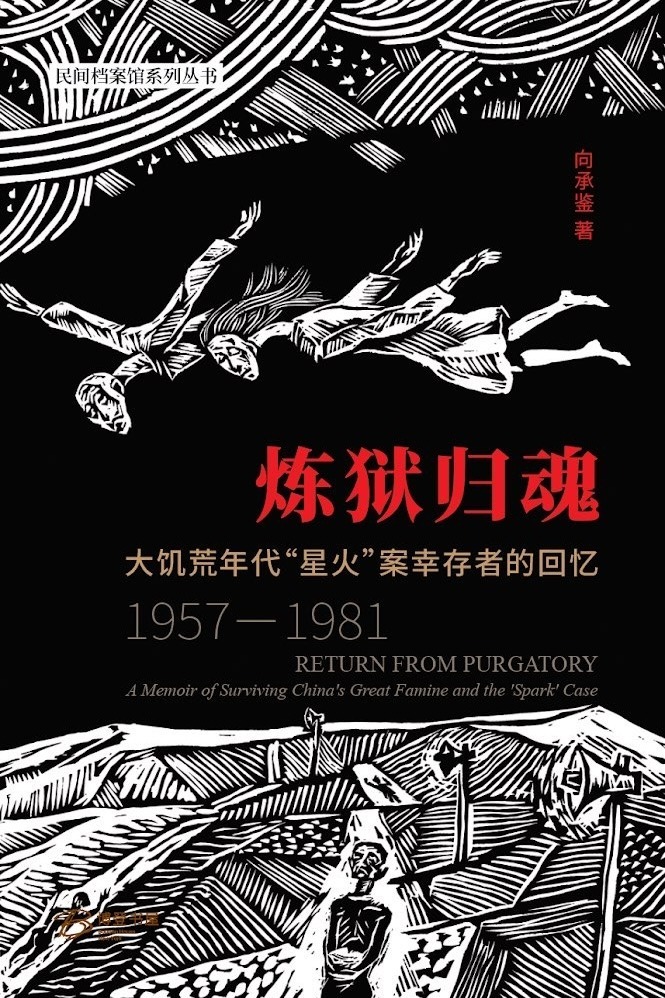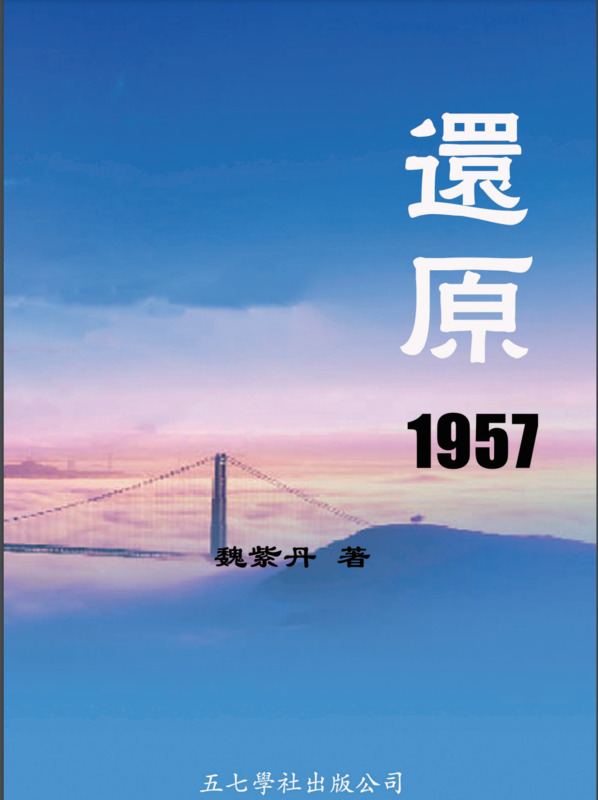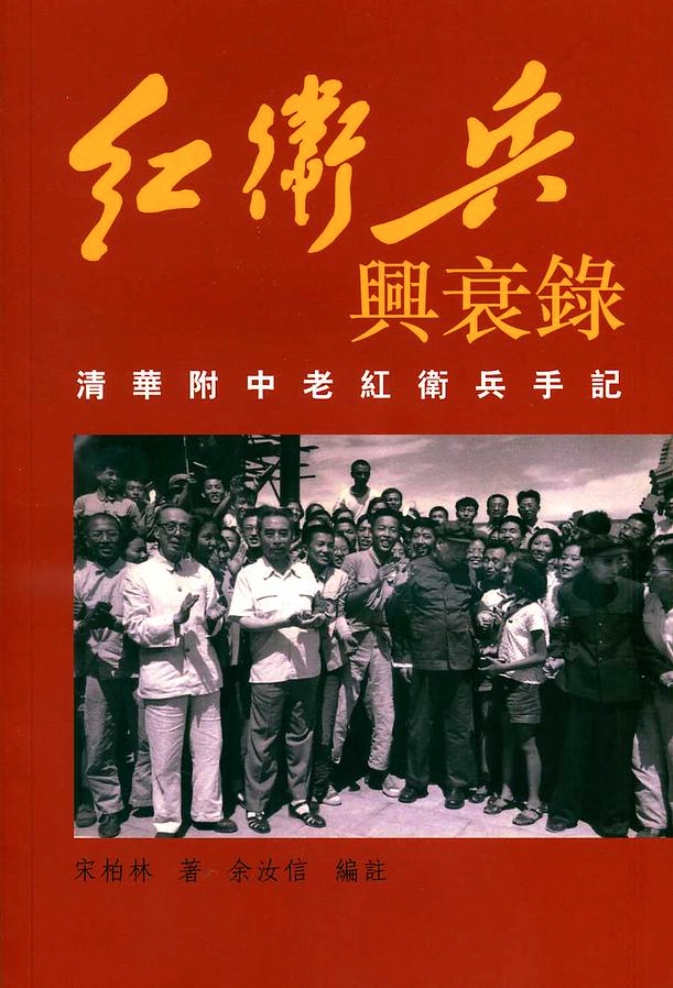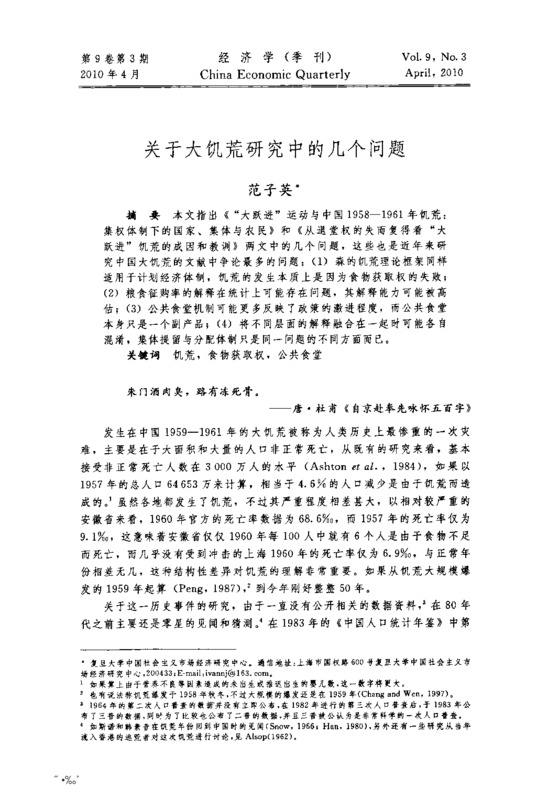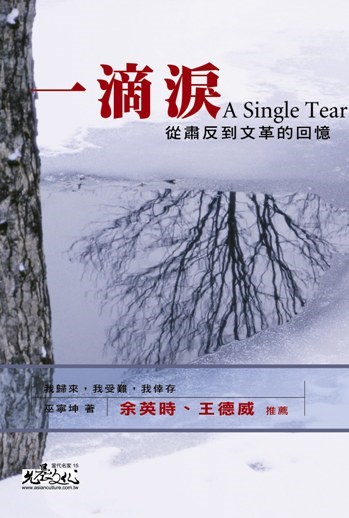Explore the collection
Showing 138 items in the collection
138 items
Book
Personal experiences of political movements
This book is a collection of many authors, most of whom were former senior officials of the Communist Party of China, such as Li Rui, Xiao Ke and others. Through the author's recollections, we can learn about the political movements of the Mao Zedong era, including the Cultural Revolution, the Anti-Rightist Movement, etc., as well as the details of many unjust cases, such as the Hu Feng case, which is quite convincing. This book was published by the Central Compilation and Translation Bureau Press in mainland China in 1998.
Book
Political Struggles in China's Reform Era
The author of this book, Yang Jisheng, is a veteran journalist with 35 years of experience in journalism at Xinhua News Agency, China's official news organization. He knows a great deal about the ups and downs of Chinese politics after the end of the Cultural Revolution as well as the intricate power struggles at the top and has a lot of first-hand information. He personally interviewed Zhao Ziyang, Zhu Houze, Li Rui, Ren Zhongyi, An Zhiwen, Tian Jiyun, and other important people. “Political Struggles in China's Reform Era”, first published in Hong Kong in November 2004, was the subject of a series of crackdowns by the authorities against Yang Jisheng. It was republished in 2010 by Hong Kong's Cosmo Books.
Article
Poppies under the Red Sun: The Opium Trade and the Yan'an Model
In the 1990s, history scholar Chen Yongfa made a fundamental study of the opium economy two decades before the founding of the CCP and completed a monograph, "Poppies under the Red Sun: The Opium Trade and the Yan'an Model". Since then, more and more research articles have been written on the subject, and new information has appeared. Subsequently, the phenomenon of the opium economy of the CCP's Yan'an regime has also became an important field of study.
Book
Price of History: The Cultural Revolution Death Files
This book brings together a wide range of social figures—both the high and mighty and common people—who were persecuted to death during the Cultural Revolution. In the preface of this book, the author writes: "It organizes and studies the death files of 34,766 people who were persecuted and killed during the Cultural Revolution, and analyzes our nation's catastrophe from an extraordinary and bloody perspective." The book was published in 1993 by China Earth Publishing House in mainland China.
Book
Prisoner of the State: The Secret Journal of Premier Zhao Ziyang
“The Course of Reform”, a memoir by Zhao Ziyang, former General Secretary of the Central Committee of the Communist Party of China, was published on May 29, 2009 by New Century Press in Hong Kong. Its English translation, “Prisoner of the State: The Secret Journal of Premier Zhao Ziyang” was published on May 13 before that. According to the book's preface, in 1992, Du Guanzheng, an old subordinate of Zhao Ziyang and former director of the State Press and Publication Administration, together with Xiao Hongda, another former high-ranking CCP official, persuaded Zhao Ziyang, who was under house arrest, to organize his experiences into a book.
Purchase link: https://www.kobo.com/hk/zh/ebook/ZoerWPfG8TiqoXIYwvW2iw.
Film and Video
Ram
The documentary "Ram" was filmed by independent director Tiger Temple in 2016 and is available here in a revised version by the author in 2021. The film documents a real-life incident that took place in Xi'an during the "1983 crackdown". The encounter of the artist Gong Yang (real name Li Xiaoming), the main character of the documentary, is quite representative. It reflects the cruelty and absurdity of the "1983 Crackdown" political campaign launched under the direction of Deng Xiaoping.
Book
Rebellion in All Its Shapes and Colors --The Formation and Evolution of the Spiritual Qualities of the Red Guards
This book seeks to reveal the characteristics of the Red Guard movement through the study of the Red Guard's spiritual qualities, such as the mode of action of the rebellion, the formation of factions and regional differences, as well as the types of Red Guard ideology and the trend of change before and after the Cultural Revolution, etc. The author is a peer of the Red Guard and has accumulated first-hand information on the subject through extensive interviews and documentary research. The author of this book, Xu Youyu, is a peer of the Red Guards, and has accumulated first-hand information about the research through a large number of interviews and documentary research. At present, there are very few studies that analyze the formation of the Red Guards' mentality based on oral data and case studies. Therefore, this book is of great reference value to researchers in this field. This book was published by the Chinese University of Hong Kong Press in 1999.
Book
Recalling the Stormy Years
This book collects 25 essays by Peking University alumni. 20 Peking University graduates recall the Cultural Revolution they personally experienced and tell what they saw and heard. The essays cover several important events. For example, there are some details about the mastermind behind Nie Yuanzi's 1967 trip to Shanghai, and about Prof. Jian Bozan, who killed himself after suffering persecution. There is also a student's observation of the intricate contradictions of the Cultural Revolution and a compendium of the pre-Cultural Revolution socialist education movement. These recollections provide valuable information for the study of the history of the Cultural Revolution at Peking University.
Film and Video
Red Art
This documentary interviews painters, Red Guards, as well as current collectors and researchers in China and the United Kingdom. It presents the emergence, spread, and impact of the propaganda posters during the Cultural Revolution. The film includes interviews with Liu Chunhua, the author of Chairman Mao Goes to Anyuan, Guangzhou painter Li Xingtao, Guangzhou old Red Guard Zhou Jineng, and others. Art museum personnels, art critics, journalists, professors, and researchers in both China and the United Kingdom speak about their understanding of the art of the Cultural Revolution from various perspectives.
This film is in Chinese with both English and Chinese subtitles.
Book
Red Guard Files, The
In 1966, the curtain opened on one of the great tragedies in human history: the Cultural Revolution. The Cultural Revolution was the religion and trap of the Red Guards. This book recounts the whole process of the Red Guard movement. The book starts with a group of initiators of the Red Guards, and with informative and sad words, it describes the movement's birth, growth, and demise.
Book
Red Life History - The Revolutionary Years (1921-1949)
Professor Pei Yiran's book is the first complete revelation of the untold revolutionary history of the CCP. The book covers many important points in the history of the CCP, including the use of Soviet rubles to build the party, the landlords fundraising campaign, and the love life of Mao Zedong and Jiang Qing, among subjects.
Book
Rethinking China's Democracy Movement
Author Hu Ping was involved in the Xidan Democracy Wall movement in the late 1970s and now lives in the United States.
He has successively chaired the pro-democracy publications <i>China Spring</i> and <i>Beijing Spring</i>. This book, published in 1992, analyzes the reasons for the failure of the June Fourth Movement and summarizes the lessons learned. The last two chapters suggest how to continue the pro-democracy movement in the future.
Book
Retrospect and Reflection - 17 Students in Exile on June 4
From July 17 to 24, 1991, seventeen student leaders who had participated in and led the 1989 student movement and later went into exile held a "Seminar on Historical Review and Reflection on the 1989 Student Movement" in Paris, France, to review and reflect on this great democracy movement in modern Chinese history. This book is organized according to the audio recordings of the speeches made at the seminar. It covers the following topics: the Peking University School Society Fever in 1988; the establishment of the Peking University Preparatory Committee; the founding of the Peking University Higher Education Union; the initiation of the hunger strike; the founding of the Hunger Strike Group; the founding of the Dialogue Group; the imposition of martial law; the founding of the Commanding Office of the Defense of Tiananmen Square; the founding of the Joint Meeting of the Capital; the establishment of martial law; the establishment of the Tiananmen Square Defense Command; the establishment of the Joint Meeting of Various Sectors in the Capital; the retreat from Tiananmen Square; the overseas student movement, etc. It includes rare historical material.
book
Return of the Soul from Purgatory: Memoirs of a Survivor of the "Sparks" Case from the Great Famine Era
In 1960, a group of faculty and students from Lanzhou University, who had been labeled Rightists and sent down to rural areas in Tianshui, Gansu, personally experienced the Great Famine. They self-published <i>Spark</i> magazine to expose and criticize the totalitarian rule that led to this catastrophe.<i>Spark</i> only published one issue before its participants were arrested and labeled as a counterrevolutionary group. Many were sentenced to long prison terms, and some were even executed. <a href=“http://108.160.154.72/s/china-unofficial/item/1759#lg=1&slide=0”>The first issue of <i>Spark</i> and more information about the "Spark Case" can be read here</a>.
<i>Return from Purgatory: A Survivor’s Memoir of the ‘Spark Case’ in the Great Famine Years (1957–1981)</i> is the autobiography of Xiang Chengjian, a key participant in <i>Spark</i> magazine. At the time, he and another student were responsible for printing the first issue, and he contributed six articles to <i>Spark</i>. Due to his involvement, he was sentenced to 18 years in prison for his role in the Spark case and was not rehabilitated until the early 1980s.
This memoir is divided into three sections, with a total of thirteen chapters spanning over 350,000 characters. It documents Xiang’s journey from being labeled a Rightist and sent to perform forced labor, to his arrest and 19-year imprisonment for his involvement in <i>Spark</i>, and finally to his struggle for rehabilitation and efforts to rebuild his life after release. In the book’s preface, scholar Ai Xiaoming offers the following assessment:
"Xiang Chengjian’s memoir holds significant value for the study of the intellectual history of contemporary China. First, it serves as another important testimony of the “Spark Case”, following Tan Chanxue’s memoir <i><a href=“”>Sparks: A Chronicle of the Rightist Counter-Revolutionary Group at Lanzhou University</a></i>, making it a crucial historical document on this act of resistance. The author reconstructs the social context before and after the case and describes how the young intellectuals behind <i>Spark</i> bravely challenged totalitarian rule. Second, the book provides a detailed account of labor camps in western China, with the author documenting his 18 years of forced labor in Gansu and Qinghai, unveiling a western chapter of China’s Gulag system. Third, it is a deeply personal intellectual history of a resister, showing the immense suffering, trials of life and death, and personal resilience under the crushing force of state violence."
The book’s appendix includes Xiang Chengjian’s six articles for <i>Spark</i>, an in-depth investigative report on him by journalist Jiang Xue, and a chronological record of the Spark Case compiled by Ai Xiaoming.
<i>Return from Purgatory</i> is published by Borden Press in New York and is the first book in the “People’s Archives Series”, published by the China Unofficial Archives. The author, Xiang Chengjian, has generously authorized the archive to share the book’s digital edition. Readers are encouraged to purchase the book to support the author and publisher.
Book
Revisiting 1957
<i>Revisiting 1957</i> is not just about the history of the Anti-Rightist Campaign but is also a theoretical reflection on that history. Written by Wei Zidan (the penname for Wei Liyan), the book has three sections: upper, in which the author discusses philosophical problems of the campaign; middle, in which he discusses the origins of the campaign; and lower, which contains his thoughts on lessons for the future. In Wei's view, the people who were declared rightists stood up for freedom of speech. The campaign, therefore, was an assault on freedom of expression and resulted in a human rights catastrophe for China. The book also has an eleven-part appendix with reflections on miscellaneous events.
Wei Zidan was born in Henan Province in 1933 and was a teacher in the Anyang Middle School. He himself was labeled a rightist and brings a unique insider's account of the movement but unlike some personal accounts of suffering, Wei also brings a more analytical approach to the issue.
After moving to the United States in his later years, he collected information and found the freedom to complete this book. Published in Hong Kong in 2013 by the May 7 Society Press.
Book
Rise and Fall of the Red Guards: A Handbook of the Old Red Guards at Tsinghua High School
The Red Guard movement originated in the Tsinghua University Affiliated High School, a secondary school for faculty and staff of the university, as well as others aspiring to attend the elite university, including the sons and daughters of high-ranking cadres. Song Bailin was a senior high school student at Tsinghua High School, one of the founders and a core member of the Red Guards.
Song kept a diary during the first years of the Cultural Revolution. Yu Ruxin, a researcher of the Cultural Revolution, felt that a section of Song Berlin's diary involving the Red Guards of Tsinghua High School was of historical value. Yu decided to publish the diary in its entirety as it was, with no deletion except for the correction of obvious typos. The diary covers the period from May 1966 to February 1968, the launching phase of the Cultural Revolution. A selection of diary entries from January to April 1966 has been included to give a better understanding of the political climate in China on the eve of the Cultural Revolution as well as the ideological trends of high school students.
Because the diary is a historic document directly from an era that is now more than half a century old, the diary lacks historical background and footnotes that might help current readers understand the context of that time. Fortunately, the current publication has a preface written by Luo Xiaohai, who explains the political atmosphere in the years leading up to the Cultural Revolution and some of the key events of that time.
For readers today, the diaries are at times hard to decipher. The Red Guards quickly were criticized by others, including those in power. As the writer Hu Ping notes <a href="https://www.rfa.org/mandarin/pinglun/huping/Hu_ping-20071112.html">in a 2007 review of the book</a>, the reversal of support for the Red Guards must have caused confusion and even a sense of betrayal by many involved. The diary, however, reveals none of this inner turmoil, Hu Ping ascribes the Red Guards' silence to the fact that keeping a diary in that era was a way for participants to prove their revolutionary zeal. Thus they self-censored and wrote with the expectation that their words would be discovered and could be used against them. This means the diary provides little in the way of psychological insights in the Red Guards.
It does, however, provide a way of understanding how totalitarian terror and power works on individual psychology. Thus when his classmates beat classmates and teachers, Song expressed embarrassment that he lacked their fervor and did not participate. This means that the diary is best seen as a primary document that shows the way young people thought at that time, rather than an exercise in self-reflection or criticism.
Book
Seventy Years of the Chinese Communist Revolution
Professor Chen Yongfa's book examines the history of the Chinese Communist Party from the perspective of modern Chinese history. It divides it into three stages: revolutionary seizure of power, continuous revolution, and farewell revolution. It delves into three major issues in CCP history: nationalism, grassroots power structure, and ideological transformation and control. published by Taiwan's Linking Publishing in 2001.
Book
Sky Burial: The Fate of Tibet
In this book, author Wang Lixiong presents his arguments with a great deal of personal experience and field work. The book covers the history of the Tibetan issue, the current situation, and various aspects. The book was first published by Mirror Books in Hong Kong in 1998, and an updated edition was released in 2009.

